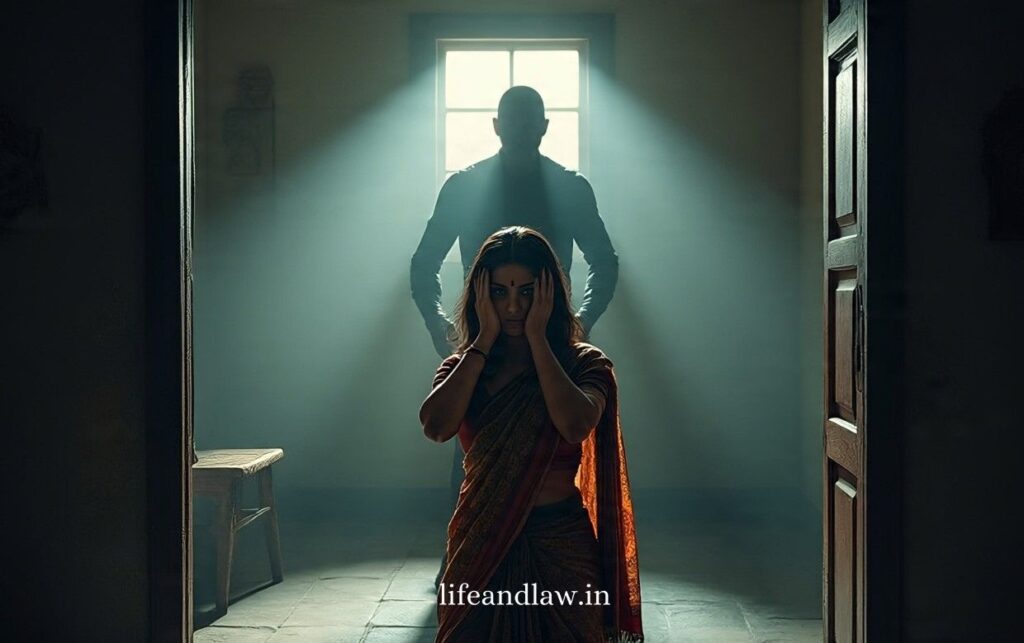Trending

Every few minutes, someone is a victim of domestic violence — often in secrecy and behind closed doors. For far too long, domestic abuse has been ignored as a “private matter” or something to be handled “within the family.” But let us be clear: domestic violence is not merely a personal issue; it is a criminal act. Not only does it affect individuals, but also families, communities, and society as a whole.
This article tries to shed light on what constitutes domestic abuse, why it is a severe crime, and how the law protects victims and punishes perpetrators.
Domestic violence does not only cause physical injury. It is a pattern of abusive behaviour in any relationship in which one person gains or maintains power and control over another. This abuse may be:
Physical: Hitting, slapping, choking, or physical intimidation.
Emotional or psychological: Threats, relentless criticism, and humiliation
Sexual: Nonconsensual acts and coercion
Economics or Finance: Controlling finances, withholding funds
Verbal: Insults, screaming, and demeaning language
Victims can include women, men, children, elders, and members of the LGBT+ community. Abuse can occur in any socioeconomic, ethnic, or educational background. The main point is that no one deserves to be abused.
Domestic abuse is frequently tolerated in many communities. People are urged to “adjust,” “stay quiet,” or “keep it in the family.” This thinking is hazardous.
Domestic violence violates fundamental human rights. It leads to long-term emotional, bodily, and psychological suffering. Children who grow up in abusive homes frequently experience lifelong trauma. Victims may experience melancholy, anxiety, PTSD, and physical health difficulties.
Ignoring domestic violence empowers the abuser. The law recognises this abuse as a crime—not a misunderstanding.
This comprehensive statute safeguards women from physical, emotional, sexual, verbal, and financial abuse. It recognises live-in relationships and offers a variety of solutions:
Protection Orders: To stop the abuser from contacting or injuring the victim.
Residence Orders: Right to remain in the shared household, regardless of ownership.
Monetary Relief: Compensation for Loss or Injury
Custody Orders: For the safety of children.
Counselling and Legal Aid: Access to free legal services and shelter housing
PWDVA is civil in nature, but violations of court orders under it are punishable by criminal law.
VAWA offers survivors legal protection and funding. It ensures:
Access to emergency shelters.
Restraining orders.
Legal representation.
Rights of immigrant women experiencing abuse
Training for police and courts.
This law protects all victims, defines economic abuse, and increases punishment for coercive behaviour. It also prohibits abusers from directly cross-examining victims in court.
Abuse is not tolerated, whether it occurs behind closed doors or in public.
Victims have the right to protection, justice, and support.
Abusers can be arrested, punished, and penalised under law.
Courts can issue orders to safeguard victims even when no physical harm has occurred.
If you or someone you know is being abused:
1.Call emergency services or a helpline immediately.
2.Document everything: Save threatening texts, photographs of injuries, and witness testimony.
3.Contact NGOs or legal help services: Many organisations offer free legal assistance and counselling.
4.Submit a report or FIR: Police are legally compelled to respond to domestic violence reports.
In India, you can contact the Women’s Helpline – 1091 or the National Commission for Women. Many countries provide comparable emergency helplines and shelters.
Remember that you are not alone, and the law is on your side.
Everyone in society has a role to play. Here’s how:
Believe victims when they speak out
Do not promote silence in the name of family honour or tradition
Teach others about their legal rights
Support survivors—emotionally, legally, or simply by listening
Report abuse if you see it
Breaking the cycle of abuse begins with breaking the silence surrounding it
Domestic abuse is neither a “mistake” or a “family matter”; it is a serious crime that violates both human rights and the law. Ending the cycle of abuse requires awareness, legal knowledge, and the bravery to speak out. Victims deserve safety, justice, and the opportunity to rebuild their lives without fear.
Legal assistance is essential, and professionals such as Adv. Abdul Mulla is paving the way. Through his platforms www.asmlegalservices and www.lifeandlaw.in, he provides straightforward legal advice, resources, and assistance to people afflicted by domestic abuse. These sites help people learn their rights and take action. Break the silence. Know your rights. Reach out and let the law support you.
Adv. Abdul Mulla (Mob. No. 937 007 2022) is a seasoned legal professional with over 18 years of experience in advocacy, specializing in diverse areas of law, including Real Estate and Property Law, Matrimonial and Divorce Matters, Litigation and Dispute Resolution, and Will and Succession Planning. read more….
Copyright BlazeThemes. 2025